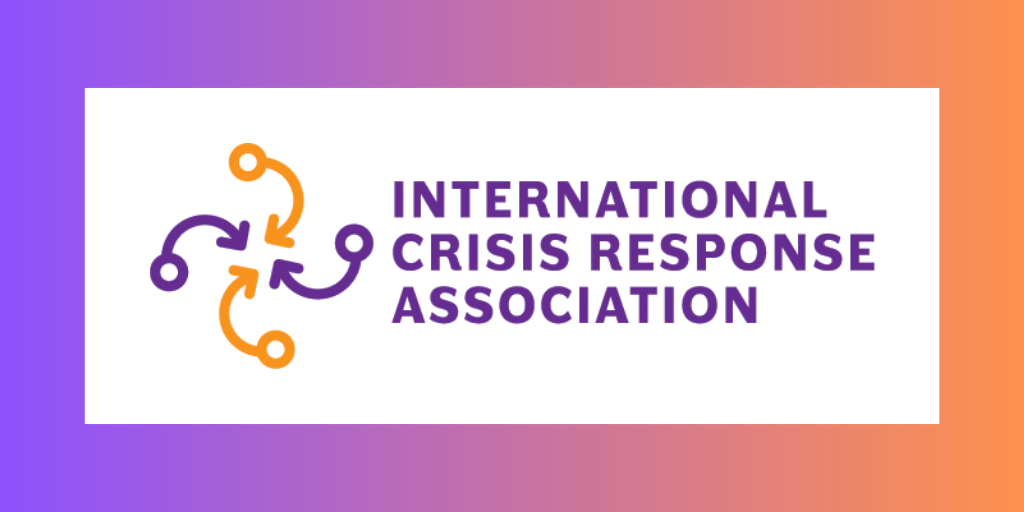In times of crisis, rapid and appropriate intervention is vital for de-escalation and safety. The International Crisis Response Association (ICRA), founded in 2019, has been pivotal in reshaping mental health crisis intervention by promoting non-police alternatives. Today, the ICRA supports over 200 municipalities across North America in establishing such services.
From Vision to Movement
ICRA co-founders Rachel Bromberg and Asante Haughton recognized the need for non-police responses to mental health crises, beginning their work in Toronto. “We started because we wanted a non-police crisis service for Toronto,” says Bromberg. What began as a local initiative in 2019 has since expanded throughout Canada and the U.S. linking cities to similar models.
In the ICRA’s first year, the CAHOOTS (Crisis Assistance Helping Out on the Streets) program in Eugene, Oregon was the only established non-police crisis model. Other cities like Olympia, Washington, began to implement their own their own programs. The ICRA facilitated collaboration through monthly calls among a small group of cities. By February 2025, that number of calls has now grown to over 100, with more than 200 models operating across Canada and the U.S.


The Toronto Community Crisis Service (TCCS) Model
The Toronto Community Crisis Service (TCCS) is a leading example of a non-police mental health crisis intervention. TCCS teams work alongside community partners, including the TAIBU Community Health Centre, 2-Spirited People of the 1st Nations, Gerstein Crisis Centre, and the Canadian Mental Health Association Toronto. The teams provide immediate support through de-escalation, needs assessment and short-term intervention, focusing on trauma-informed care and harm reduction.
The goal is not just crisis stabilization but connecting individuals to longer-term support, such as case management and healthcare services to name a few.
A Transition into the Future
Bromberg highlights that we are in a transitional period for crisis response. “Twenty years from now, the standard of care may be to access non-police models instead of calling the police for mental health crises,” she explains. For College registrants, this shift means adapting to emerging best practices and understanding the implications for crisis response in their own work. Bromberg underscores the importance of staying ahead of this transformation. “Every community is going to have one of these models. This is the way of the future.”
Addressing Safety Concerns
A common concern with non-police crisis response is the safety of both responders and individuals in crisis. Bromberg assures that in over 200 operational models, no crisis worker has been seriously injured or killed. Crisis response teams are trained to de-escalate situations before they can escalate into danger and are only dispatched to incidents without weapons or immediate threats. “These teams handle situations where police involvement could lead to unnecessary escalation,” Bromberg says. When crisis response teams are deployed, the risk of escalation is significantly decreased.
The safety record of these teams, combined with their effectiveness, demonstrates that non-police responses offer compassionate and effective support.
Actions That Registrants Can Take
Social workers and social service workers can take several steps to advocate for or implement non-police crisis response models in their communities:
- Engage with existing models like the TCCS for valuable insights.
- Advocate for municipal support, as local government backing is key.
- Collaborate with healthcare providers and social services to create a comprehensive response.
- Educate colleagues and policymakers about the benefits of non-police crisis services.
- Raise awareness by incorporating crisis response information into communications – something as simple as updated email signatures.
Registrants can also reach out to the ICRA to help get community responder models started via email at hello@icraconnect.org.
Haughton encourages registrants to embrace their power to drive change. “Our power is larger than we think.”
The Future of Crisis Response
The future of crisis response is promising, with the ICRA’s expansion continuing to provide cities with the resources and knowledge to develop and refine their services. Non-police models are proving successful in a wide range of communities, including those with high levels of immigration, poverty and diversity.
Haughton highlights the broader societal impact of the work done by College registrants. “Registrants often face challenges that reflect larger societal issues. Recognizing this allows them to organize and address these challenges head-on,” he says.
Bromberg offers a compelling analogy: “Think of the 9-1-1 system, which was developed in the 1960s. It wasn’t always there, but within two generations, it became the standard. Non-police crisis response will surely also become the standard.”
The call to action is clear: advocate, get involved and support these transformative models. As the future of crisis response unfolds, shaping it requires active participation. By championing these services, we can build a more compassionate, effective system that prioritizes care over criminalization and healing over harm.
The College thanks Rachel Bromberg and Asante Haughton for speaking with us and sharing their experiences. In appreciation, the College has made a donation to the International Crisis Response Association.
CRISIS RESPONSE TEAMS BY REGION
Note: This information was taken from the Centre for Innovation in Campus Mental Health
Below is a list of how to access mobile crisis response services across Ontario. Please note that this list includes both police and non-police interventions as each city/region may offer different partnerships.
To find a civilian mental health crisis program near you, visit https://justmentalhealth.ca/programs for a full comprehensive directory.
CENTRAL ONTARIO
- Barrie Police Service and CMHA Simcoe County
- Local: 705-728-5044
- Toll Free: 1-888-893-8333
- Durham Regional Police Service and Lakeridge Health
- 905-433-4384
- Halton Crisis Outreach and Support Team (COAST) and CMHA Halton Region:
- 1-877-825-9011
- Hamilton Police Service and St. Joseph’s Hospital Crisis Outreach and Support Team (COAST)
- 905-972-8338
- OPP Orillia and CMHA Simcoe County
- Local: 705-728-5044
- Toll Free: 1-888-893-8333
- Peel Regional Police and CMHA Peel Dufferin
- Local: 905-278-9036
- Toll Free: 1-888-811-2222
- Toronto Community Crisis Service
- Local: 2-1-1
- Toronto Gerstein Crisis Centre
- Substance use crisis line: 416-962-0220
- Mobile crisis intervention and follow-up team: 647-361-8333
- Youthdale (up to 18): 416-363-9990
- York Support Services Network
- 1-855-310-COPE (2673)
NORTHERN ONTARIO
- OPP Kenora and CMHA Kenora
- Mobile Crisis Response Team (MCRT) 1-866-888-8988
- OPP North Bay and Nipissing Mental Health Housing & Support Services
- 9-1-1 ACTIVATED SERVICE
- North Bay Regional Health Centre
- Local: 705-495-8198
- Toll Free: 1-800-352-1141
- Sudbury Mental Health and Addictions Centre, CMHA Sudbury/Manitoulin, Compass, Greater Sudbury Police Service – crisis line and mobile crisis team
- Local: 705-675-4760
- Toll Free: 1-877-841-1101
- CMHA Thunder Bay Crisis Response Services
- Local: 807-346-8282
- Toll-free: 1-888-269-3100
EASTERN ONTARIO
- Brockville General Hospital
- Local: 613-345-4600
- Toll Free: 1-866-281-2911
- Cornwall Police Service and Cornwall Community Hospital – crisis line and mobile crisis team
- 1-866-996-0991
- Kingston & Frontenac Addiction and Mental Health Services
- Local: 613-544-4229
- Toll Free: 1-866-616-6005
- Lennox & Addington Addiction and Mental Health Services
- Local: 613-354-7388
- Toll Free: 1-800-267-7877
- Lindsay Kawartha Lakes Police Service and Ross Memorial Hospital
- Local: 705-745-6484
- Toll Free: 1-866-95-9933
- Ottawa Alternate Neighbourhood Crisis Response (ANCHOR)
- 2-1-1
- Peterborough Police Service, OPP Peterborough County and CMHA Haliburton, Kawartha, Pine Ridge – Mobile Crisis Intervention Team
- Local: 705-745-6484
- Toll Free: 1-866-995-9933
SOUTHWESTERN ONTARIO
- Brantford Police Service, Brant County, St. Leonard’s Community Service
- 9-1-1
- Cambridge Waterloo Regional Police Service and CMHA Waterloo Wellington – Integrated Mobile Police and Crisis Team (IMPACT)
- 9-1-1 (Available from 10 a.m. – 11 p.m.)
- Chatham-Kent CMHA Lambton Kent 24-7 Mental Health First Response Service:
- 1-866-299-7447
- Guelph HERE 24/7 – Addictions, Mental Health & Crisis Services Waterloo-Wellington
- Local: 519-821-3582
- Toll Free: 1-844-437-3247
- London Police Service and CMHA Elgin Middlesex
- Local: 519-433-2023
- Toll Free: 1-866-933-2023
- CMHA Niagara
- 1-866-550-5205
- Sarnia/Lambton CMHA Lambton Kent 24-7 Mental Health First Response Service:
- 1-800-307-4319
- St. Thomas Police and CMHA Elgin-Middlesex
- 9-1-1
- Waterloo Regional Police Service and CMHA Waterloo Wellington – Integrated Mobile Police and Crisis Team (IMPACT)
- 9-1-1 (Available from 10 a.m. – 11 p.m.)
- CMHA Windsor-Essex County
- 519-973-4435


